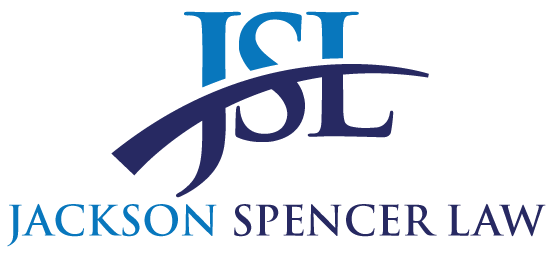Are you facing workplace discrimination based on a disability or your age? Perhaps you’ve been working for your employer a long time, only to discover that with age, your health has declined. Many employees facing health challenges fear discussing their concerns with their employer. However, if you’re having difficulty performing your job due to a disability or age-related health condition, you have rights.
As employment lawyers, we’ve seen our share of disability and age-related discrimination in the workplace. While disabilities affect workers of all ages, we’ve found a link between age and disability (and unfortunately, a link between disability and age discrimination).
One piece of advice we offer to employees in this situation is to start an honest discussion with an employer before performance issues pop up. If you make a reasonable request and your employer treats you differently (like reducing your hours or firing you), you may have an actionable discrimination case on your hands.
In this article, we’ll briefly discuss the laws that protect you from discrimination based on disability, how those laws apply, and the relationship between age and disability discrimination.
If have been experiencing issues at work, such as discrimination, wrongful suspension, or wrongful termination, contact us for a free consultation with our legal team.
Laws Prohibiting Disability Discrimination
There are a few laws working in conjunction to combat disability discrimination, including the Americans with Disabilities Act, the Rehabilitation Act, Family and Medical Leave Act, and the Age Discrimination in Employment Act. The most well-known of these laws prohibiting discrimination against persons with disabilities is the Americans with Disabilities Act (ADA).
Americans with Disabilities Act
In general, the ADA makes it illegal for employers to treat qualified individuals with disabilities unfavorably because they have a disability. To learn more about specific protections under the ADA, read on to the next section, “Unfavorable Treatment is Prohibited at Any Stage of Employment.”
The ADA also prohibits harassment of an applicant or employee because they have a disability, had a disability in the past, or are believed to have a disability. Harassment rises to the level of illegality when it is so frequent or severe that it creates an offensive work environment or results in an adverse employment decision (like demotion or firing). The law also protects people from discrimination based on their caregiving relationship with a person with a disability (like a child, spouse, or parent).
To be protected by the ADA, a person must be qualified for the job and have a disability as defined by the ADA. The ADA offers three key definitions for disabilities:
- a person may be disabled if they have a physical or mental condition that substantially limits a major life activity (like walking, talking, seeing, hearing, or learning);
- a person may be disabled if they have a history of disability (like cancer that is in remission);
- a person may be disabled if they have a significant physical or mental impairment that is expected to last 6 months or less.
Family and Medical Leave Act
Protections for disabled persons can also extend to their caregivers. If you have family members with disabilities that you must care for, your employer may have to accommodate you in order to comply with FMLA regulations. The FMLA requires employers to accommodate an employee who must care for a disabled family member under certain circumstances.
Age Discrimination in Employment Act
The ADEA prohibits discrimination against people who are aged 40 and older. The law prohibits discrimination in any aspect of employment – including hiring, firing, pay, assignments, promotions, training, and benefits. Because advanced age brings with it an increased risk of disabilities, disability and age protections often work hand-in-hand. If you’re facing unfavorable treatment at work because of a disability and you’re also 40 or older, you may have more than one cause of action against your employer.
Rehabilitation Act
The Rehabilitation Act offers protections nearly identical to the ADA. The key difference between the laws is that the Rehabilitation Act covers federal employees and applicants (as opposed to the ADA).
Unfavorable Treatment is Prohibited at any Stage of Employment
The law forbids discrimination when it comes to any aspect of employment, including hiring, firing, pay, job assignments, promotions, layoff, training, and fringe benefits. This is important to remember because many job applicants do not realize they are protected by the law just the same as active employees.
Unfavorable Treatment During Application & Hiring Stages
An employer cannot ask applicants if they have a disability during the interviewing and hiring process. This means they also cannot require an applicant to complete a medical exam before making a job offer.
An employer can ask, however, whether an applicant can perform the job and if they would require reasonable accommodations to perform the job. After a job is offered, an employer can condition the job offer on the applicant answering medical questions or successfully passing a medical exam, but only if all new employees in the same type of job have to follow the same procedure.
Unfavorable Treatment During Employment
The law requires an employer to provide reasonable accommodation to an employee with a disability. A reasonable accommodation is any change in the work environment to help a person with a disability perform the duties of a job. For instance, a reasonable accommodation might include making the workplace accessible for wheelchair users.
An employer does not have to provide an accommodation if doing so would cause “undue hardship.” Undue hardship simply means the accommodation would be too difficult or expensive to provide in light of the employer’s size, financial resources, and needs of the business. An employer may not refuse to provide an accommodation simply because it involves some cost.
Unlawful Termination
If you divulge to your employer that you have a disability or make requests for reasonable accommodations and your employer fires you, you should contact an employment lawyer right away. Unlawful termination is one of the most serious forms of disability discrimination. Since you only have a limited amount of time to file a complaint against your employer, it’s wise to seek professional advice right away to ensure you don’t miss any opportunities for redress.
Disability & Age Discrimination
Earlier we noted that one way the ADA defines disability is “a physical or mental condition that substantially limits a major life activity (like walking, talking, seeing, hearing, or learning).” Naturally, as one ages, there is a greater chance one will experience a condition that limits major life activities. The risk of arthritis, strokes, vision problems, and hearing problems increase with age – each of which could potentially qualify as a disability.
While age discrimination and disability discrimination used to be viewed independently (and still occur independently), there is a strong link between the two. This means, if you’re over 40 and have a qualifying physical or mental condition, you are protected by more than one federal law. Subsequently, if you face unfavorable employment actions, there is a stronger chance that you may be able to take action.
Jackson Spencer Can Help
To learn more about disability and age discrimination, check out our educational articles. If you’re facing discrimination in the workplace due to a disability or your age, contact our experienced employment attorneys today. We’ll tackle your case with honest advice and aggressive representation to protect your rights as an employee.



